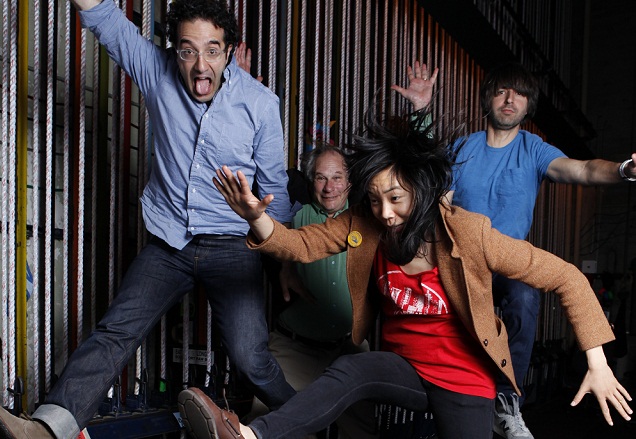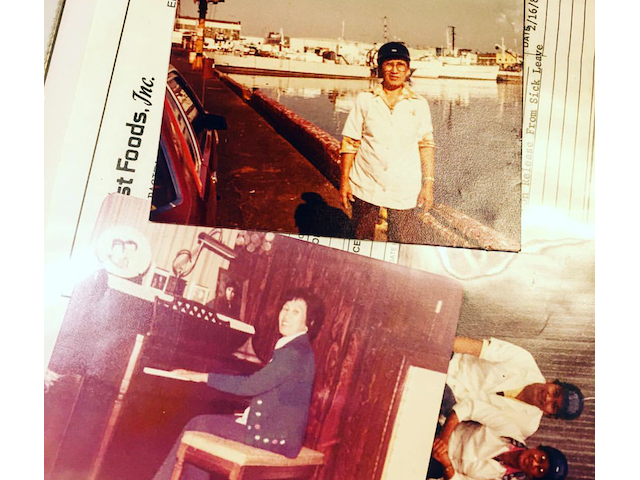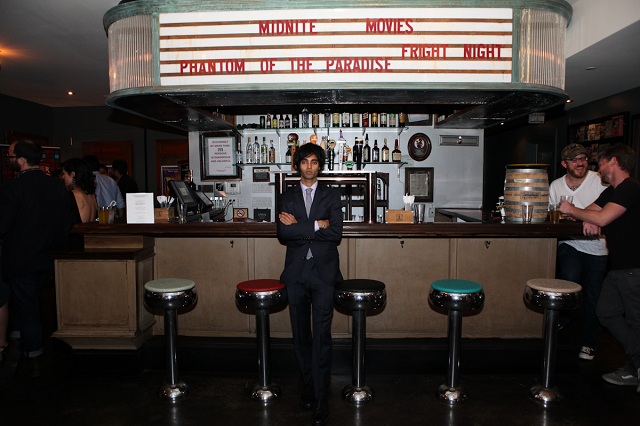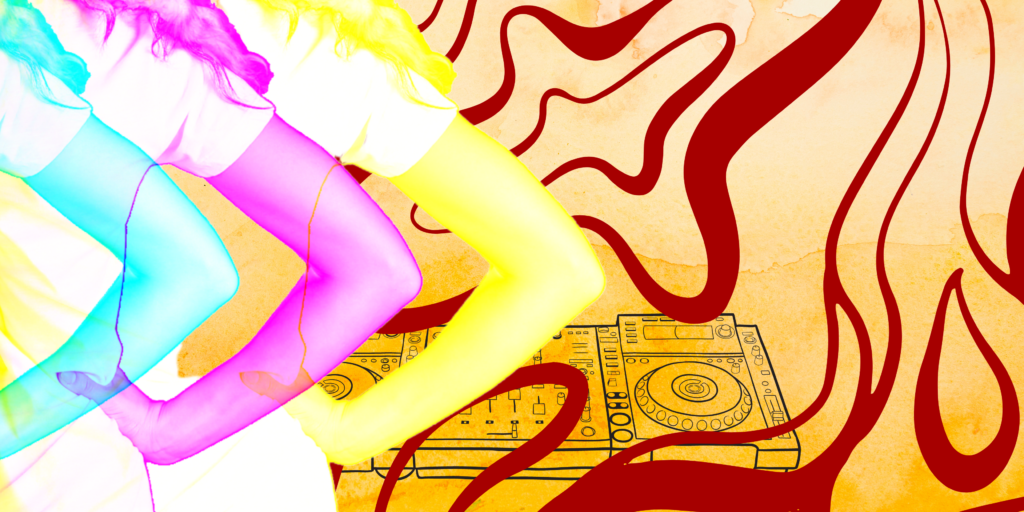“The first real song I wrote was a book report for Lord of the Flies.”

September 19, 2012
Did you grow up with Vietnamese music in your house? I did, but you know, we lived in a very white neighborhood and I think that it took me a really long time to start to respect and embrace where I came from. So I grew up with it, but I didn’t quite appreciate it. But there was this thing—and anyone who grew up in a Vietnamese household will tell you—there are these video series. Have you heard of them? The most popular one is called Paris by Night and it’s this production that’s done every three or four months or something in Southern California. It’s this variety show of a pretty standard cast of Vietnamese performers. And they bridge the gamut—there’s super old folks’ music that all the old people love (which now I prefer), and then there’s shades of imitations of American pop music. So they have like boy bands and when Madonna was in her prime, there was one woman who was essentially the Vietnamese Madonna. But anyway, those things are usually popular and everybody watches them. So I grew up with a lot of that.
A Paris by Night live performance.
How does your ethnicity flow through you musically? Does it? I did hear those really sad wartime ballads when I was growing up and my mom would always tell me these lines from different songs. There were these amazing images. There’s this one song, I don’t know what it’s called, I don’t know how it sounds, but she always describes it as a pilot who’s flying and he’s flying through the clouds and he’s thinking of his family that he’s left behind. Because he has to go fight the war. Images like that and that sort of poignancy and a real somber, morose element definitely exist in my music—and a sort of nostalgia. And tonally, I grew up speaking Vietnamese, and sometimes I sing a line and I think it sounds like it could be Vietnamese.
When you say you hear nostalgia in your music, what I hear a lot in your music is a sense of intelligent desperation. It’s really smart music, but there’s a sense of primal desperation in the lyrics. Yeah.
I’m kind of curious where that comes from. I was thinking about the way in which you play with grammar sometimes in your music and how people who are bilingual or maybe [learned] English as a second language—I assume English was a first language for you or you learned them together or something—sometimes you have a different relationship to English grammar. You can play around with it, do you know what I’m saying? Thanks for noticing, Jad. I’ve never considered that. I think that sort desperation—I think all of that comes from growing up in a turbulent home and sort of connecting with someone who’s trying to disconnect in other ways. And then, as an adult, not understanding humans. The lyrics or the writing, I’ve never considered, but you know, it’s funny. I teach 826, that creative writing group that Dave Eggers started; I do writing workshops with them when they want me to. And I always tell the—it’s always high school kids or whatever—but I always tell them to listen to the way kids speak and they way people whose first language was not English, the way that they manipulate vocabulary or the way that they use vocabulary, whatever is available, to convey the idea. Because I think it’s so poetic. Maybe I have had the good fortune of being raised with two languages. You can try to be more acrobatic.
How many times have we performed now together? About twenty times? Fifteen? Twelve? Or a million.
It feels like a lot. I don’t know how many times it’s actually been. Let’s say it was twelve times. I’ve heard you play—what do you call that song? “Squareneck”?
I’ve heard you play that a million times and every time I hear something different in that song. And I’m always like [hums]—it’s just such a weird choice of words. I like it, it makes me feel uncomfortable. What you’re saying in that song is so despairing in some sense. Yeah, I know. It’s true.
Somehow that popped into my head. I don’t mean to generalize about all your music, but somehow that’s looming large for me in that song. That’s funny. This is sort of off-topic, but it reminds me that—so I do these prison visits, I work with the California coalition for women prisoners. It’s this thing that I just started doing a few months ago, but one of the songs that I wrote that actually will be the single for the new record is about this woman who’s serving a life term in Valley State Prison for women. I went to see her last week, and I wrote out the lyrics and gave them to her and then she couldn’t read my handwriting, so I read them out loud. But she’ll never be able to hear it. Unless—I’d have to somehow make sure that the record ended up in the library system of the prison. You know, since we can’t bring music in. It was really funny to have that element removed. I’m trying to explain this song that I wrote about her to her, and I can’t. I’m reading the lyrics out to her and I can tell that they kind of don’t… they could make sense but they could easily not make sense. There is a sort of roundabout: they make sense to me because I’m writing it, but without the music it could be a lot of things.
Okay, let’s complete the story of you becoming a performer. I’m thinking of something you told us on tour about playing in that laundromat. Tell me about the moment when you got turned on to being a performer, being a playing musician. You had described to us about being in a laudromat and [how] you would play along to the dryers. Yeah. I always stood at the counter and in between customers, I would just play guitar and try to work on… well, at that point, I was just trying to figure out how to play.
Nguyen stopped by NPR’s offices to give an intimate performance at the desk of All Songs Considered host Bob Boilen.
And how old are you at this point? Are you twelve? Yeah. Or thirteen. Customers would come in and I think they would be struck by the novelty of it and some would show me, you know, a little run or this walking line or a chord and they’d stand there and just sort of listen for a while, and then I would get so embarrassed and I would apologize for having them endure such sounds. But I think I did get used to it. I forgot about it. That’s where my first exposure was to playing in front of people, because people would just walk in and wait for me to help them at the counter.
But you would be deep in a Zeppelin riff or something? Yeah. Or else I’d stop and they’d say, “Oh no, keep playing.” Just the novelty, I’m sure.




